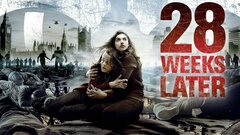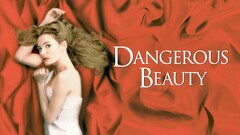English actress Catherine McCormack made her share of movies on both sides of the Atlantic, most notably "Braveheart" (1995), in which she played the doomed wife of Mel Gibson's heroic William Wallace. The success of that film allowed her to enjoy screen time in several features, including leads in "The Land Girls" (1997) and "Dangerous Beauty" (1998), as well as supporting turns in Hollywood productions like "Spy Game" (2001). But she seemed happiest on stage in her native UK, where she appeared in several acclaimed theater productions.
Born Jan. 1, 1972, in Hampshire, England, McCormack studied acting at the Oxford School of Drama, appearing in numerous stage productions starting with "Mother" by Bertold Brecht (which she openly claimed was over her head in terms of interpretation). She made her film debut shortly before graduation in Anna Campion's - sister of Jane Champion of "The Piano" fame - low budget horror feature, "Loaded" (1994). Roles on stage and on UK television followed, before Mel Gibson cast her as the love interest in his epic adventure "Braveheart." The film's worldwide success catapulted McCormack into the public eye, but she refused to take the Hollywood route.
Her next feature, "The North Star" (1996), was a European-made Western adventure starring Christopher Lambert and James Caan, and was seen by few outside of its continental theatrical dates.
McCormack's next feature was "The Land Girls" (1998), a critically acclaimed English production about three women (McCormack, Anna Friel and Rachel Weisz) working at a farm in Dorset during World War II. McCormack's talents finally got the showcase they deserved in the role of Stella, a flighty young woman in love with a naval officer. She quickly followed this film with two others - "Dangerous Beauty" (1998), a period romance-drama about a young woman who becomes a courtesan in Venice, and "Dancing in Lughnasa" (1998), based on the popular stage production about five sisters in rural Ireland in the 1930s. The latter film put McCormack on screen with such powerhouse talent as Meryl Streep and Michael Gambon, with critics commenting that she more than held her own. Though all three films were seen by limited audiences, McCormack held true to her personal credo of only making films that interested her.
McCormack appeared in two more little seen films, the British romantic comedy "This Year's Love" (1999) and "The Debtors" (1999), a disastrous comedy with Michael Caine that suffered numerous setbacks. Perhaps sensing a downward turn, McCormack returned to the theater, where she was nominated for an Olivier Award for "All My Sons" at the Royal National Theater in 2001. Film and theater shared equal importance in her career after this. She played the star of F.W. Murnau's "Nosferatu" (1921) and the lust object of Willem Dafoe's vampire in Elias Merhige's pretentious "Shadow of the Vampire" (2000); a photographer investigating a 19th century murder who suspects her husband of infidelity in "The Weight of Water" (2000); and an amorous British Embassy official involved with cynical spy Pierce Brosnan in "The Tailor of Panama" (2001). None were box office hits, but again, McCormack was singled out by audiences and critics for her uniformly solid work.
McCormack busied herself with theater and British television for the next few years, save for a turn opposite Brad Pitt and Robert Redford in Tony Scott's overblown thriller "Spy Game" (2001). She played Queen Elizabeth I in "Gunpowder, Treason, and Plot" (2004), a Romanian-lensed period drama about Mary, Queen of Scots, as well as Kathleen Tynan, wife of theater critic Kenneth Tynan in "Kenneth Tynan: In Praise of Hardcore" (2005). That same year, she made a foray into big-budget special effects territory with "The Sound of Thunder," a science-fiction adventure film based on a short story by Ray Bradbury that was savaged by critics.
In 2006, McCormack appeared on stage in "The 39 Steps," a complicated adaptation of the Alfred Hitchcock thriller from 1939 in which she played all three of the female roles - with her male co-stars divided the remaining 40 characters. The following year, she partnered with Jonathan Pryce and Alfred Molina in John Irvin's "The Moon and the Stars," about a troubled production of the opera "Tosca" in Italy at the outbreak of World War II. McCormack also gave genre filmmaking another shot that year by starring in "28 Weeks Later," the action-packed and blood-soaked sequel to Danny Boyle's exciting horror feature "28 Days Later" (2002).























































































































